A record of the total solar eclipse on 2023-04-20
(The pictures for this trip can be found here at their full resolution)
I chose to observe this eclipse from Australia. I'd considered Indonesia and East Timor, but eventually decided against them: Australia had better weather for the eclipse, I could cross it off from the list of continents, and I wanted to keep the trip in English. So my plan was to observe it in Exmouth - a small town in the northwest corner of Australia. Then I threw in the Philippines as another English-speaking country in the area that I had heard good things about.
Australia
When I got to Australia, one of the first things I noticed was the night sky:
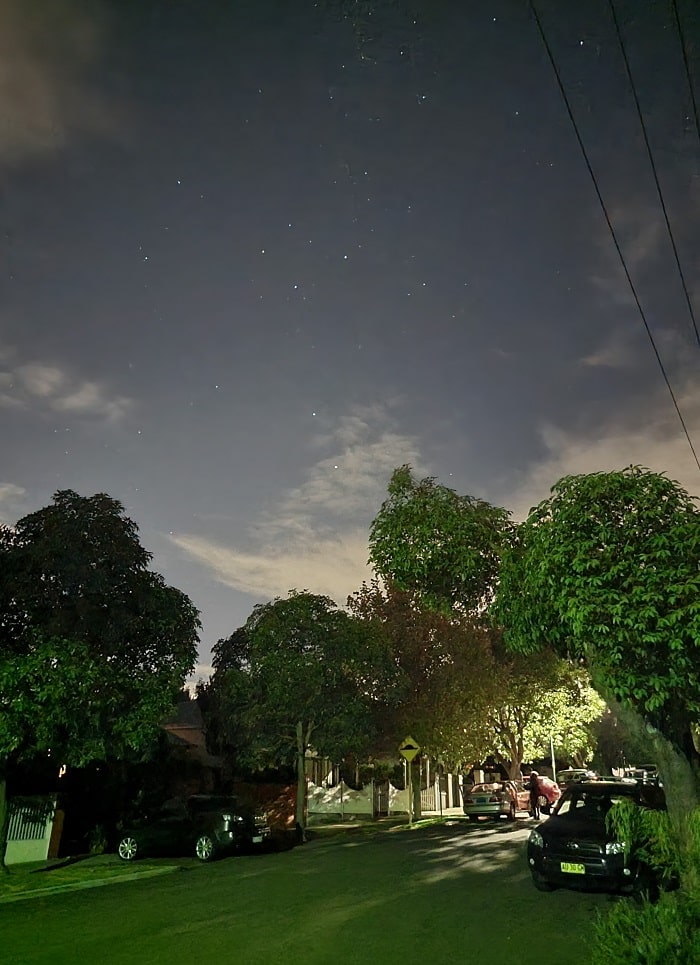
The Southern Cross welcomed me back to its hemisphere, and it was a treat seeing it from a country that has it on its flag!
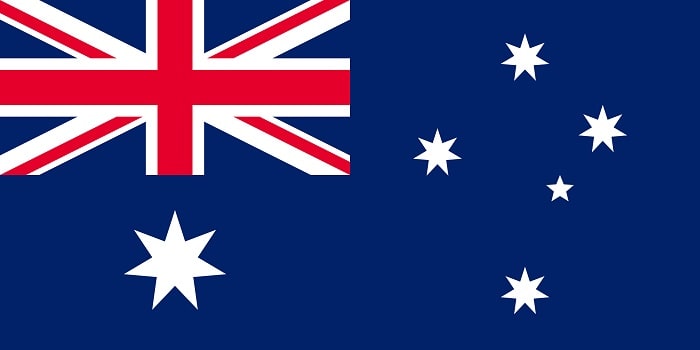
I'd landed in Perth. I have a friend who used to live there, and she recommended some things for me to do in the city, including seeing it from King's Park:
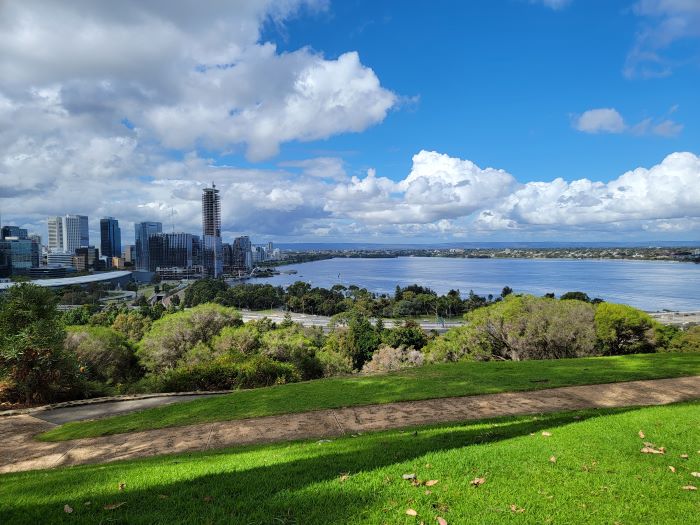
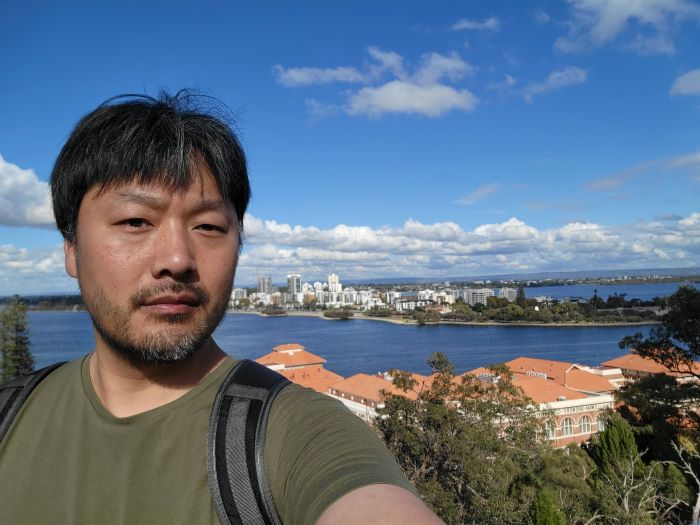
Perth is a beautiful city. With two rivers, a bay and a coastline, good weather, nearby geological resources, little natural disasters, and more, it's the kind of city I would design for myself in a video game. Throw in a good economy with a strong jobs market, and it's no wonder that it's considered one of the most liveable cities in the world.
My friend also recommended some quintessentially British dish which was supposed to be especially good in Perth, but I got these fillet of fish with french fries instead. They were indeed delicious:
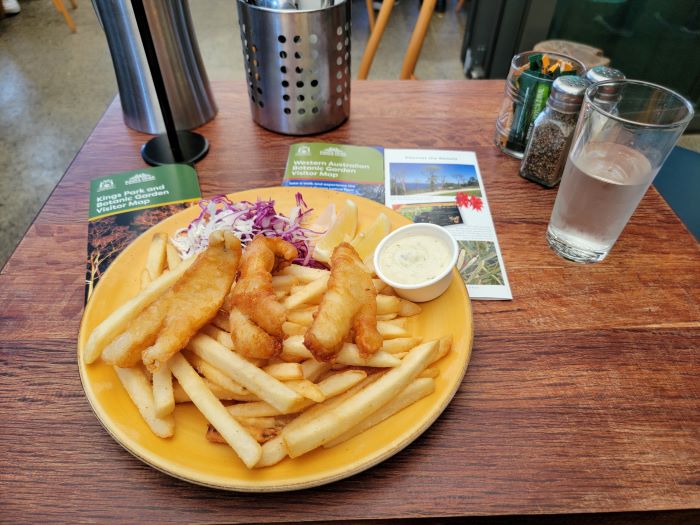
This was on a Sunday, so earlier in the day I had attended metrochurch in Perth for their morning service:
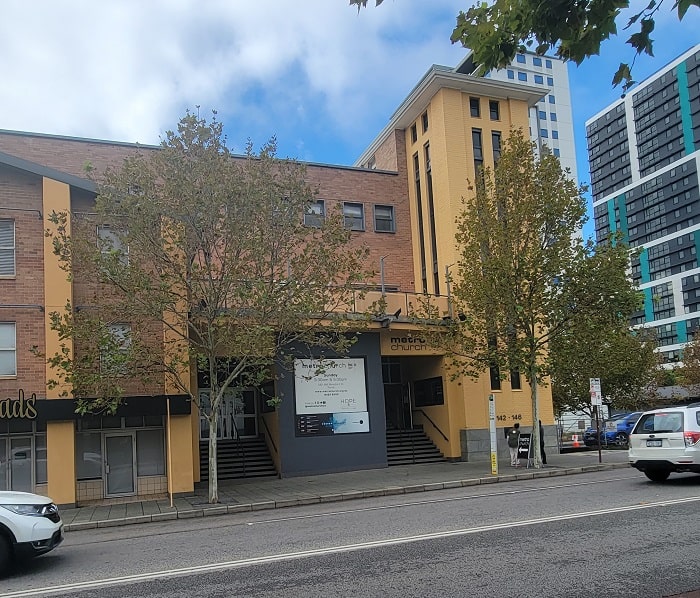
They were very friendly, and invited me back for dinner at the church that the evening, where I met several like-minded men. We talked about a lot of things - about the eclipse, traveling, Australia in general and Perth in particular, America and its politics, world economics and the currently shifting course of history. I had a great time!
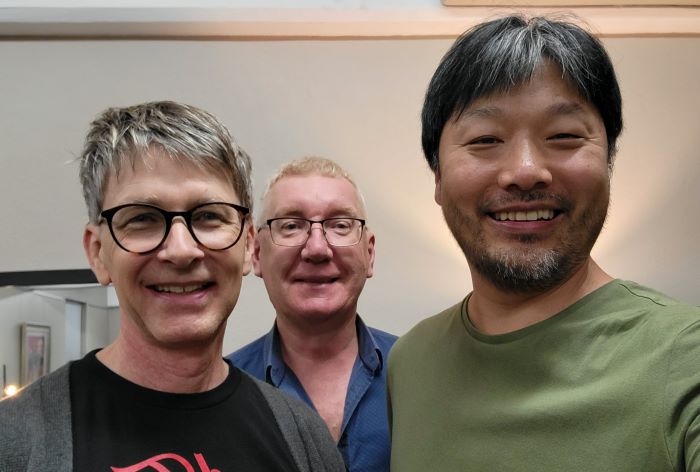
In particular, we talked about the need for great leaders in America in our current situation. I don't think we're so far gone as to need a Lincoln, or heaven forbid, a Washington, but we can certainly use a Kennedy or a Reagan right about now. They also brought up Martin Luther King Jr., and I happened to have a collection of his sermons with me at that moment, in his book "Strength to Love". It's fantastic for some travel reading: it's lightweight, digestible in small chunks, and worth multiple readings. It was also a great conversation piece, since I was able to take it out on the spot and expand our discussion, and of course we bonded over that as well. In fact, one of the men invited me over to his house afterwards, to show me these two pictures hanging prominently on his walls:
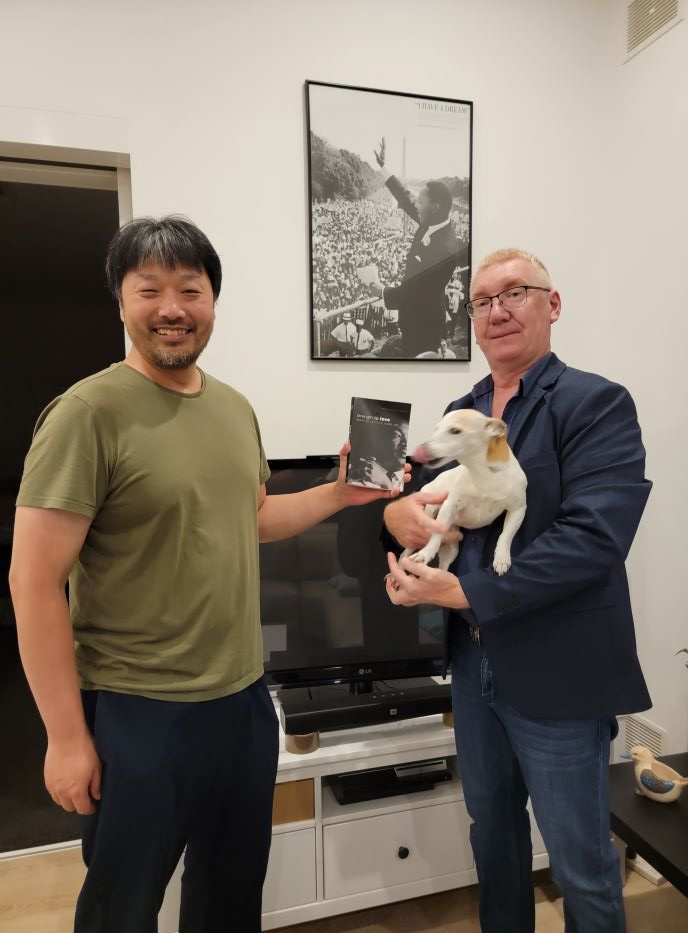
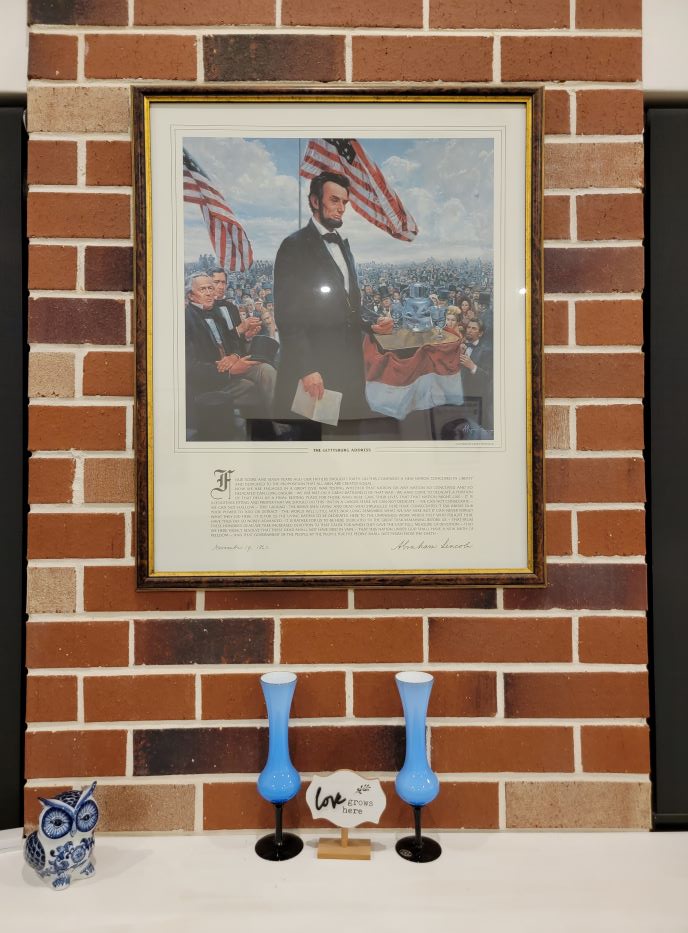
At this moment I felt an emotion that I could not name. It's a mixture of gratitude, satisfaction, and pride, but it's a humbling feeling too, along with the trepidation that comes in a calling. Nor was this the only time I felt it during my trip. It came up again and again, in conversations with locals and tourists from all over the world, and in monuments where America left its mark. I don't know if Americans really understand what we are to the world - how unique we really are, and how much influence we wield, in both our strengths and our follies. The world and its history has its eyes on us. Of course, no one knows the future. But I have a dream - that we can still be a shining city on a hill, that our government can still be of, by, and for the people - if we would but choose to do the hard things for our country.
And so, after still more great discussions and the receiving of gifts, I said goodbye to my new friend who invited me into his house, giving thanks to the divine Providence that allowed our meeting and watches over the fortunes of all nations.
Next day I visited Rottnest Island. They had some nice beaches, where I got to swim in the Indian ocean for the first time. There was a neat lighthouse, and some pretty birds.
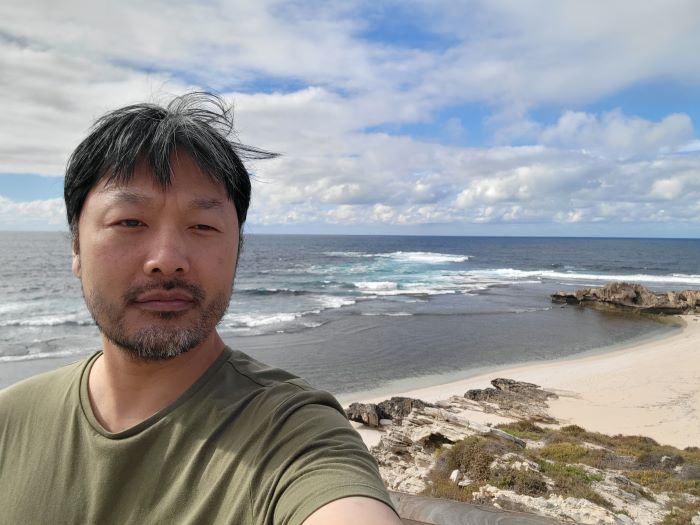
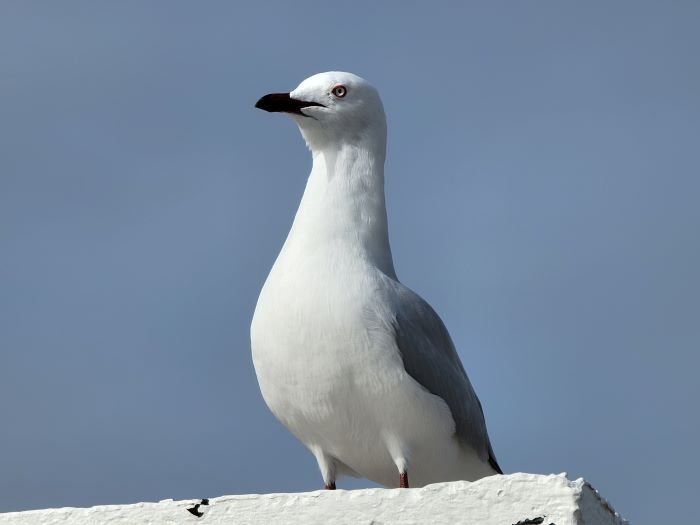
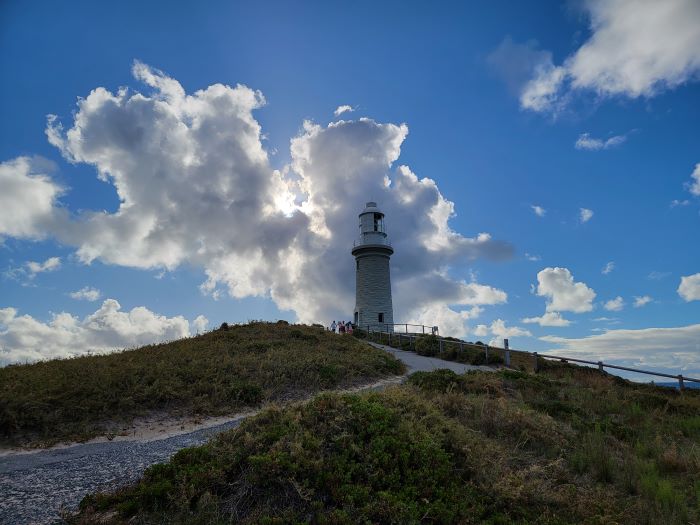
But perhaps their most popular attraction here is the quakka - a small marsupial with no natural predators on the island and no fear of humans, who are dubbed the "happiest animal on earth". Rottnest Island was actually named after them, after a Dutch explorer mistook the quakkas for rats as large as cats, and called the island "Rats' Nest Island". Taking selfies with them is a popular activity.
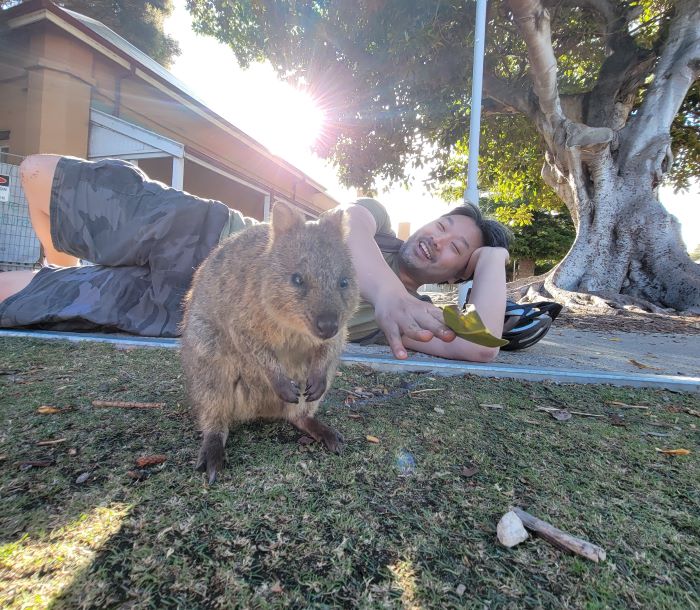
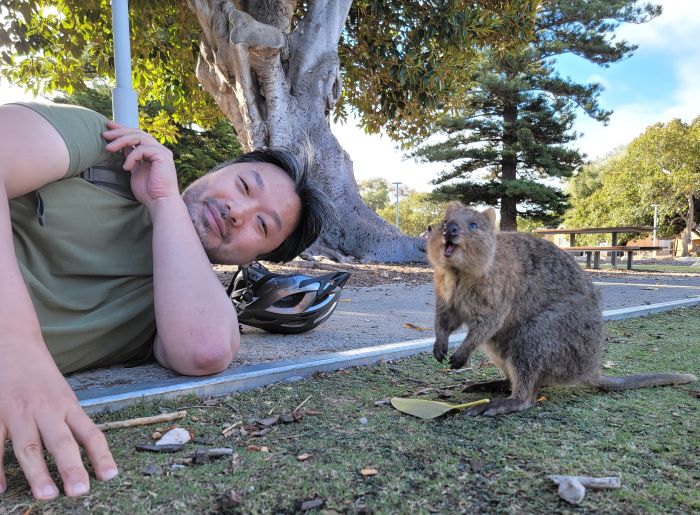
But danger still lurks even in this quakka's paradise - I think I saw this one get in what might have been an altercation with another quakka, then I nearly ran over them with my bike as they hopped off afterwards.
Of course, Australia is famous for its wildlife, beyond just the quakkas. One of their best-known animals is the kangaroo, which I had the good fortune of encountering at dinner that night:
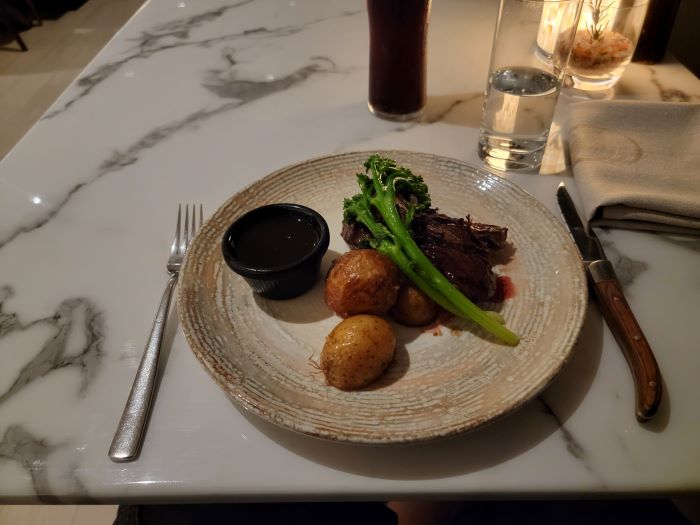
It was delicious! I would absolutely like to try it again sometime. But the next day, I was determined to see some live versions of Australia's renowned animals.
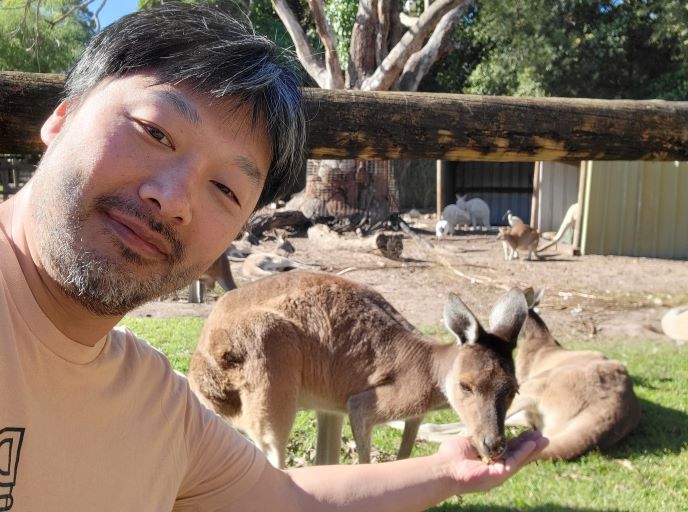
I've spent way too much time thinking about whether I could beat a kangaroo of my own size in a fight. But despite this, and my dinner the previous night, I bear them no animosity, and in fact found them to be really fun to hang around. I couldn't keep one as a pet, but I wouldn't mind living near something like a kangaroo zoo.
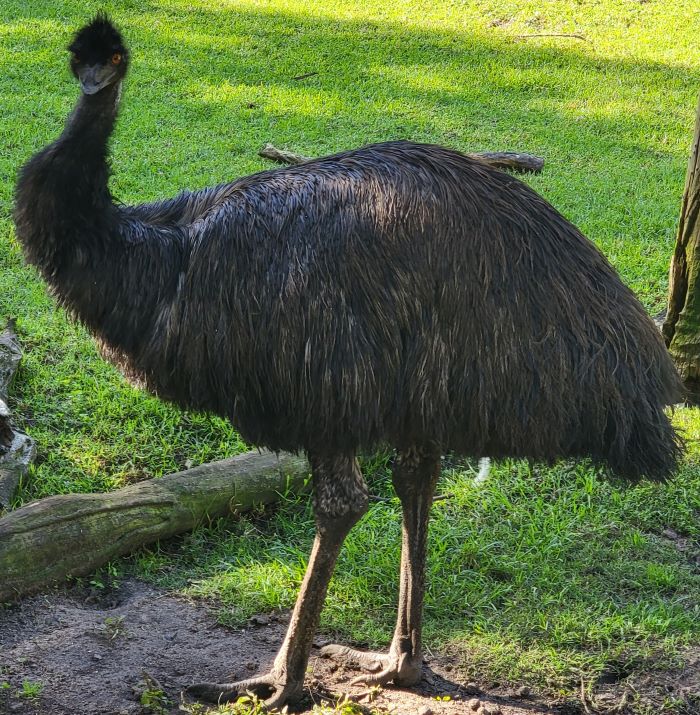
Emus are large, flightless birds with beautiful bright eyes, and apparently also quite delicious. My greatest regret in Australia is that I did not get to try one. They have a very unique mating pattern, and they're well-known for their "Emu War". They appear together with the Kangaroo on Australia's Coat of Arms.
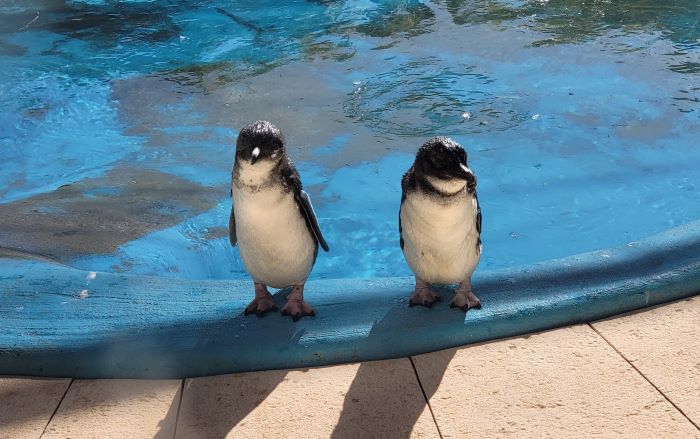
Penguins are generally thought of as animals of the Antarctic, but some of them can be found quite further up north, including in Australia.
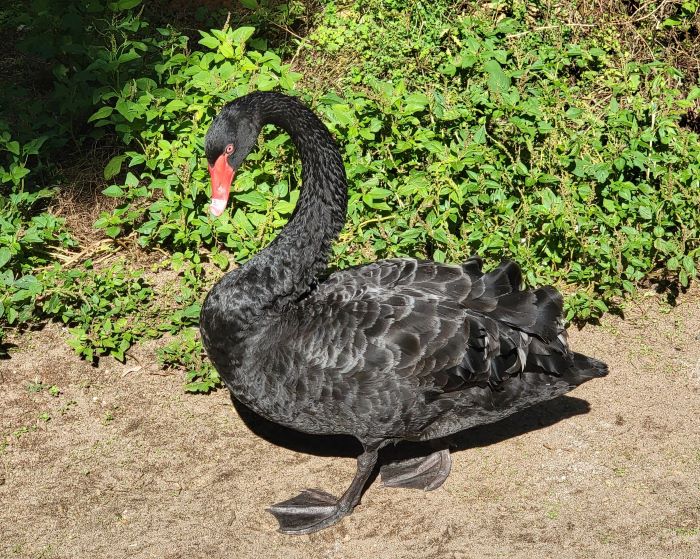
It was once thought that all swans were white. "Black swans" were then used as an expression for impossibility - until people discovered them in Australia. Now, "black swan events" are used as a shorthand for a rare, unexpected event that upends the previously dominant theories. They are my favorite color/animal combination.
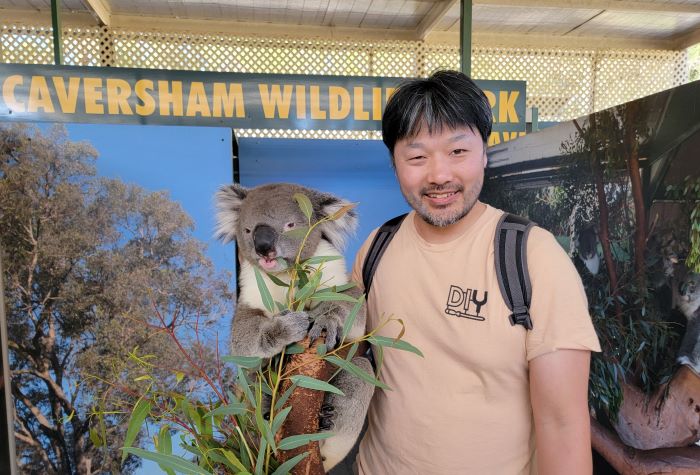
Koalas are one of Australia's most iconic animals, and perhaps the most "chill" among them all. They spend most of their life sleeping and eating eucalyptus leaves. This does make it easy to take a picture with one.
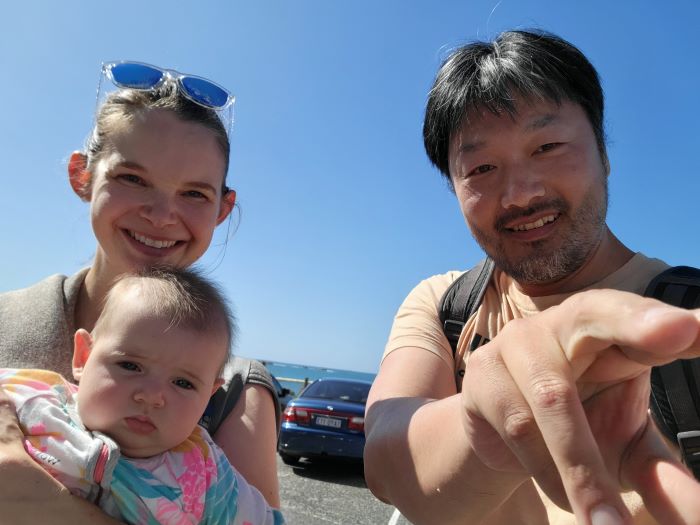
This is a friend from work, with her baby daughter. She's currently on maternity leave in Australia, but I thought I should take this chance to visit her. The following description of this picture should be read in the voice of Sir David Attenborough, in the manner of one of his nature documentaries:
"But among the many exotic animals in Australia, one stands out far above the rest. Here we have a young female baby of the species Homo Sapiens. Although she looks small and adorable, do not let her appearance fool you. Her species can grow to nearly two meters in height, and live to a hundred years in age. They are unquestionably the dominant species in their environment - the apex predator of all apex predators, subduing the whole world before them.
Like her mother, this little one will grow to be graceful, powerful, able, and intelligent - abounding in vitality and wisdom. Among all the members of the animal kingdom, they are utterly unmatched in their phenomenal abilities. Some even say that they were made in the very Image of God.
But all this takes time. Humans are exceptionally helpless as newborns, and they take many years to reach maturity. Especially at this age, they spend a lot of their time sleeping. This one is getting tired, and will soon need a nap. But the power to be strong and the wisdom to be wise will all come to her in time.
Sleep and grow, little one!"
The next day was the eclipse day. I flew up with my tour group up to Exmouth, in the northwest corner of Australia. I didn't get to explore the town though, as the whole day was dedicated solely to the eclipse and the transportation involved.
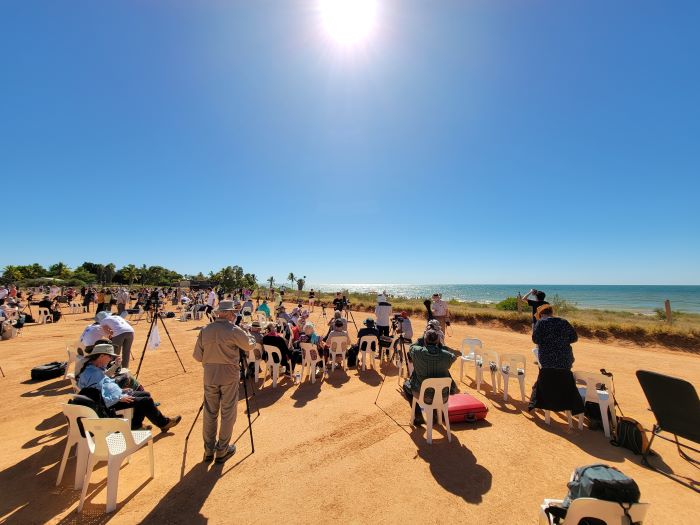
This was the site my tour group chose for the eclipse. It's some time before totality.
And this is totality:
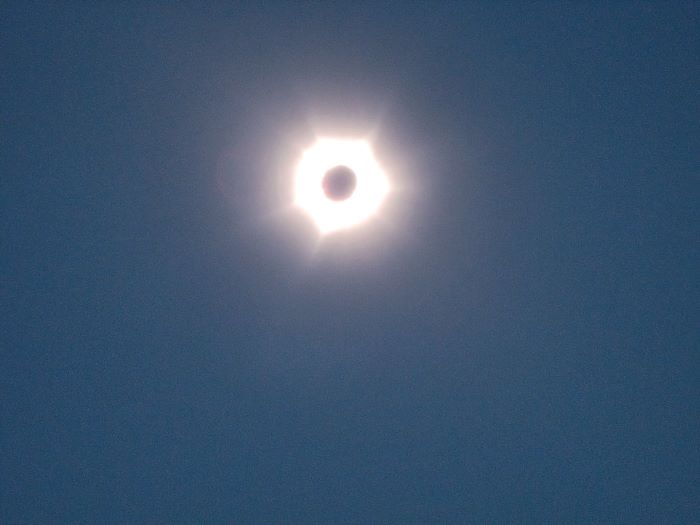
This picture, again just taken with my phone, does not do it justice. And every time I think about getting some real equipment, I come back to thinking that no picture could do it justice. It's easy enough to search online for "eclipse pictures" and look through a bunch of professional photos. But I have yet to see one that fully captures the whole impact of the event - of that otherworldly darkness descending on the world from what looks like a black hole punched in the sky by an alien god, or the brilliance of the sun being restored in the diamond ring as it transitions back to daylight.
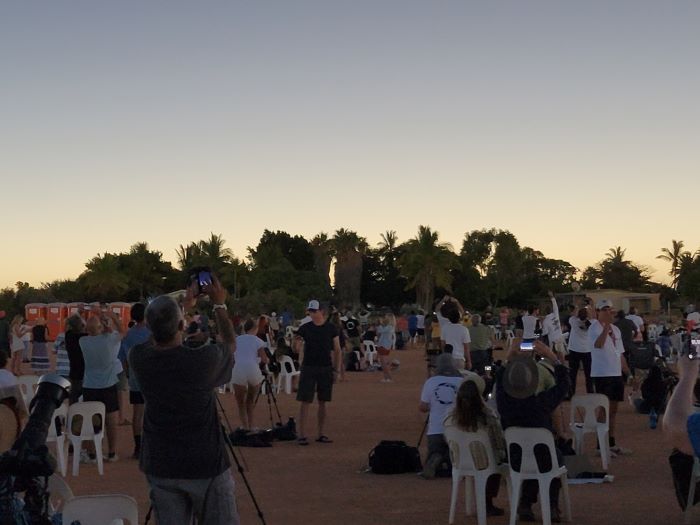
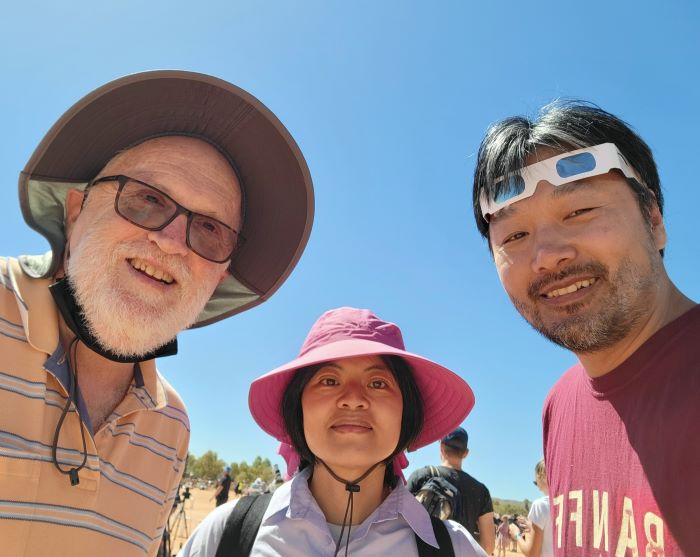
These are some people I saw the eclipse with. The woman in the middle hadn't seen one before, and rated it a 10/10 - which is worse than the 25/10 that I gave it upon seeing it for my first time. I still hold, as I did then, that it is the greatest natural spectacle I have seen, or will see, in my life.
The next day I visited Nambung National Park, where they have these interesting limestone formations called the Pinnacles:
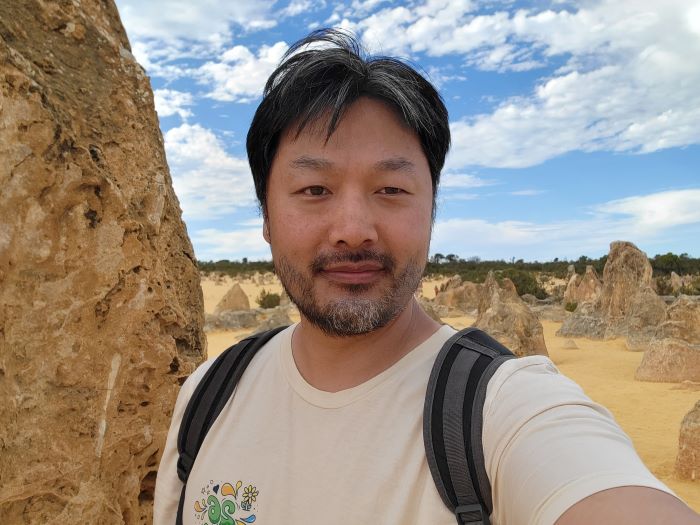
My last stop in Australia was Cicerello’s restaurant in Fremantle, on the recommendation of a friend. It did indeed have neat aquarium inside:
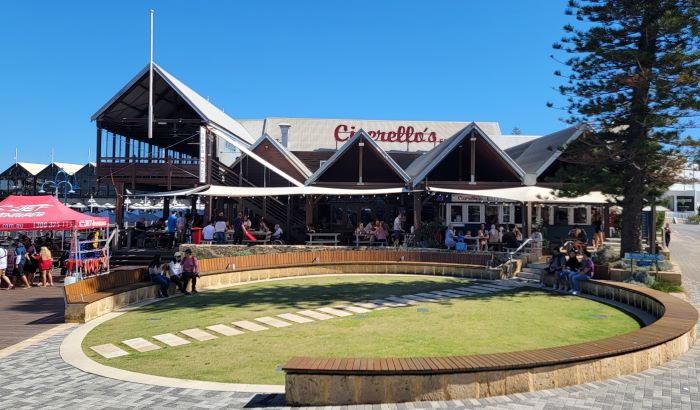
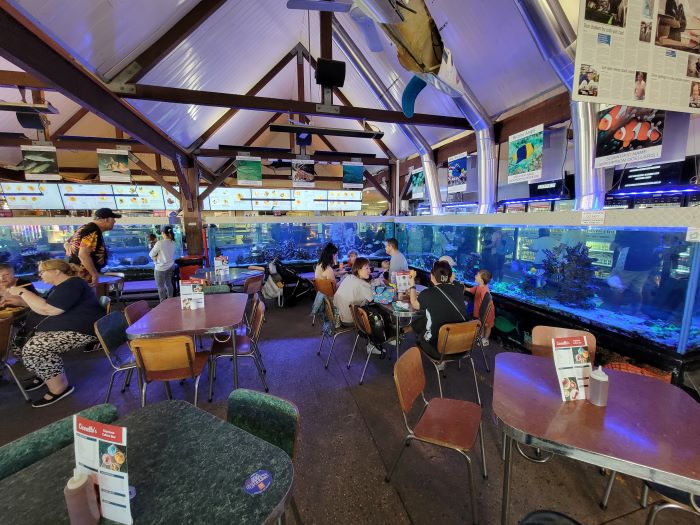
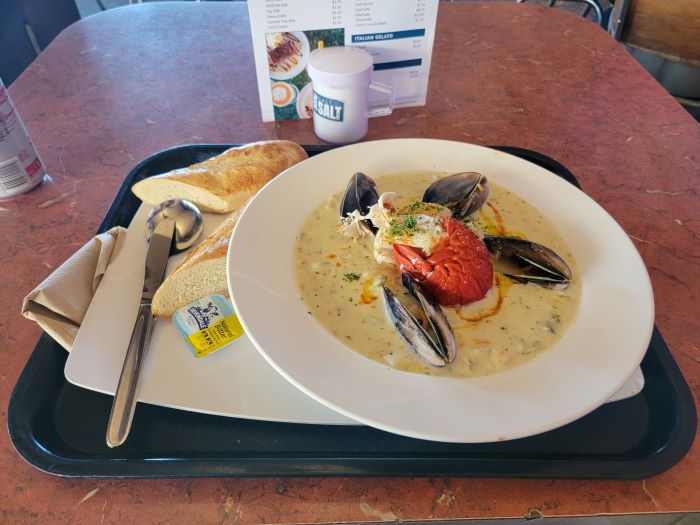
And that was about it for Australia - I took a flight out not too long after the meal. Australia is a big country, and I've only seen a tiny fraction of it. I'd certainly like to visit again sometime!
The Philippines
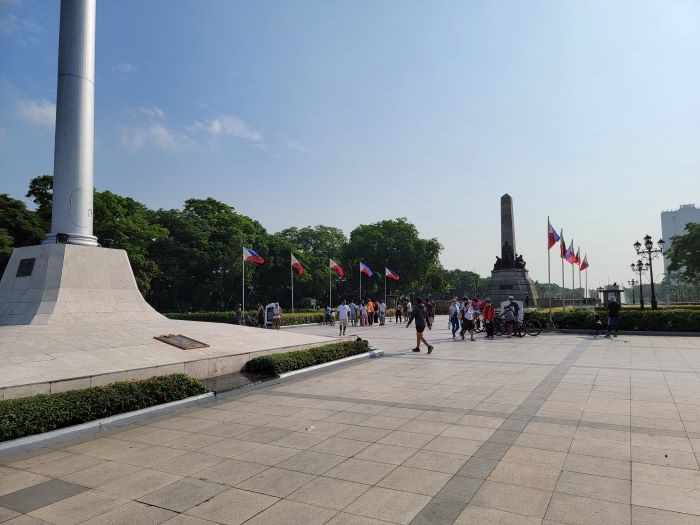
I landed in the Philippines on a Sunday morning after an overnight flight, and again attended a local church. The service felt strangely familiar - a bit like a Korean church from my younger days, a bit like some Catholic services I'd been to - and so appropriately Filipino, or so it seemed to me.
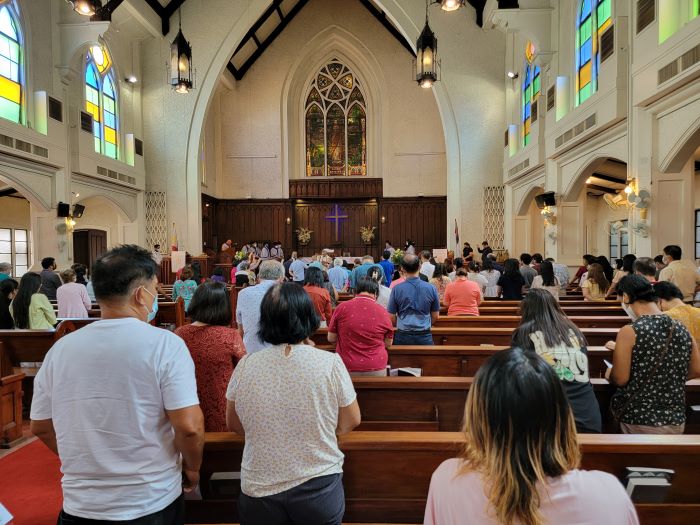
I was unfortunately exhausted at this point, from not just the flight but also from my packed schedule in Australia. So I took a day to just rest up in my hotel, which fortunately had a nice, convenient restaurant in its lobby.
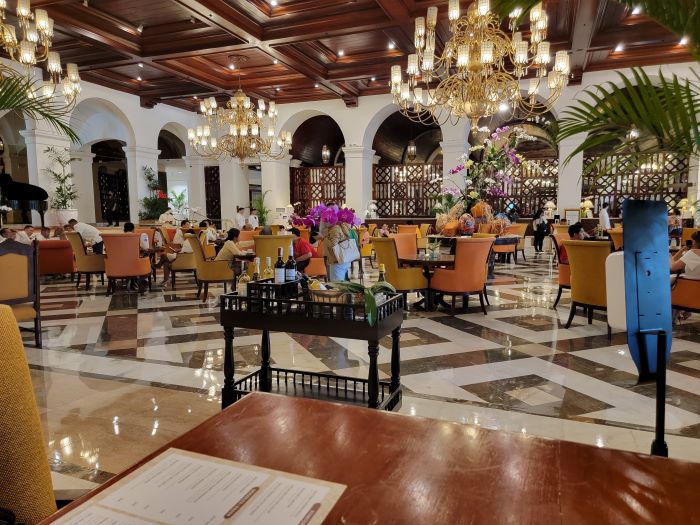
That was in Manila, but I didn't stay there long. Basically everyone I talked to about the Philippines told me to go to the beaches - which makes sense, Philippines is a tropical island nation after all - and Boracay consistently came up as the island to go to. So, I went.
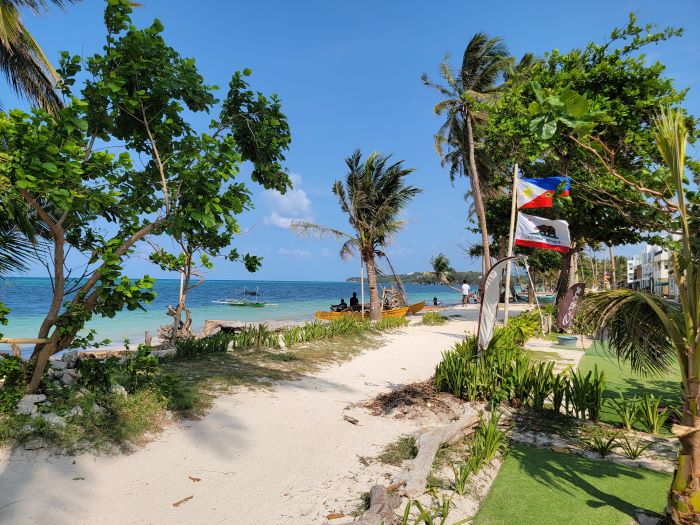
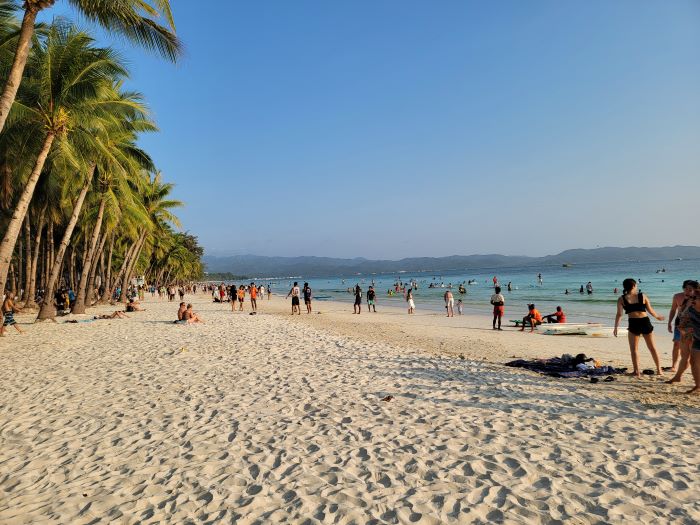
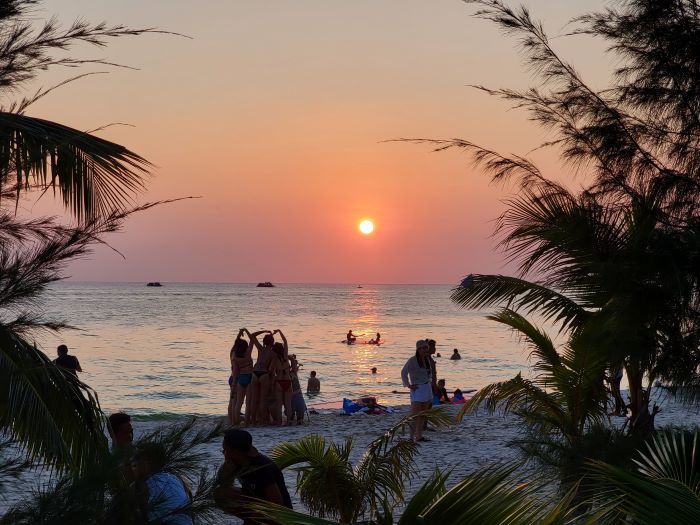
The beach itself on the main island of Boracay was nice enough, but it was the activities based from there that I found the most memorable. I did some island hopping...
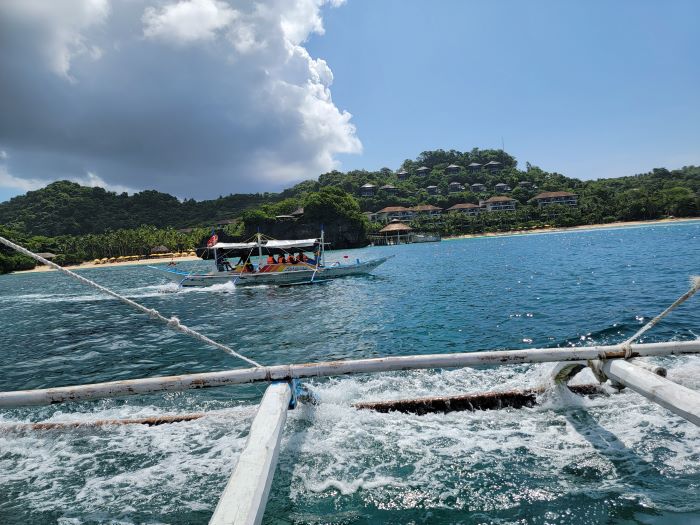
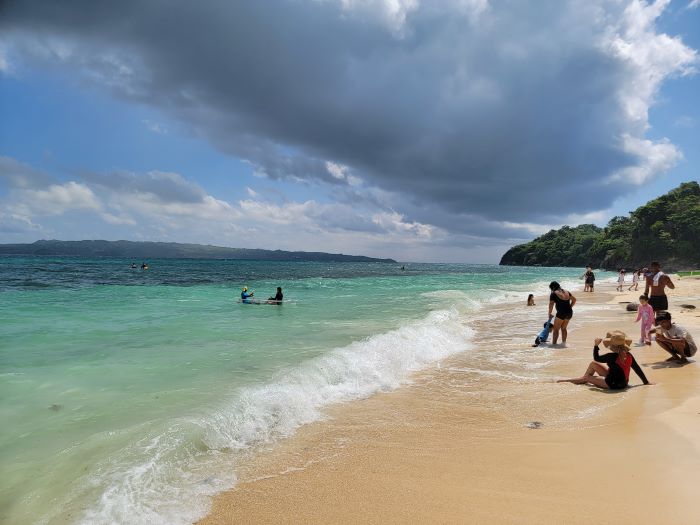
And one of them had this neat cove...
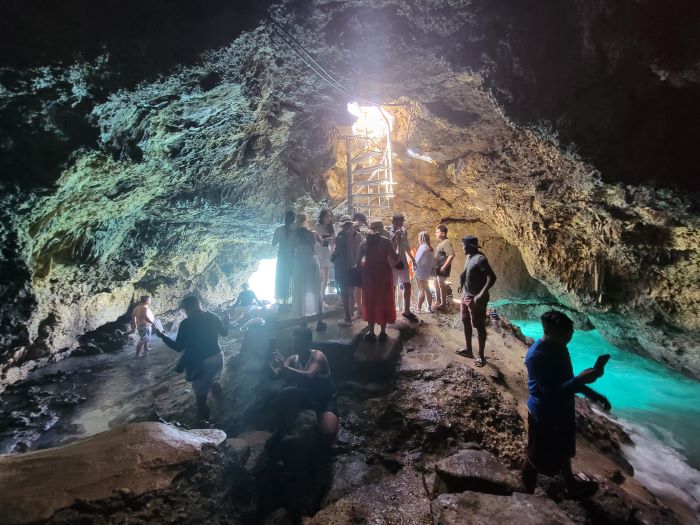
And some interesting scenery:
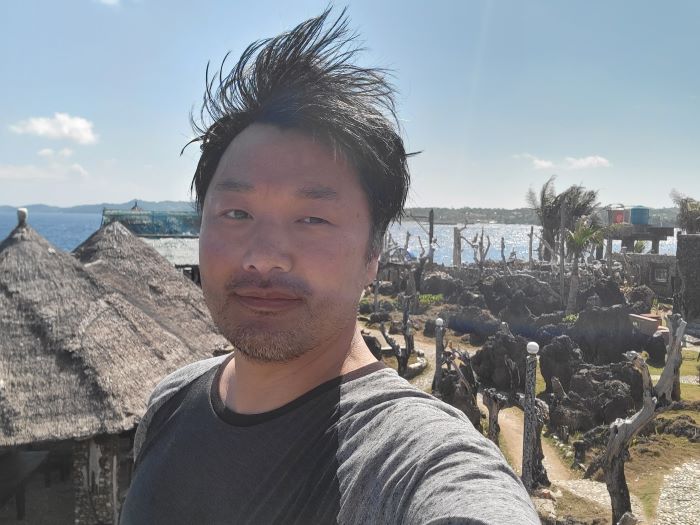
But my favorite activity here was the helmet diving. They put a helmet on you for air, and drop you about twenty feet under the sea. It's all very easy, requiring virtually no skill or training, but the returns in spectacle were well worth it:
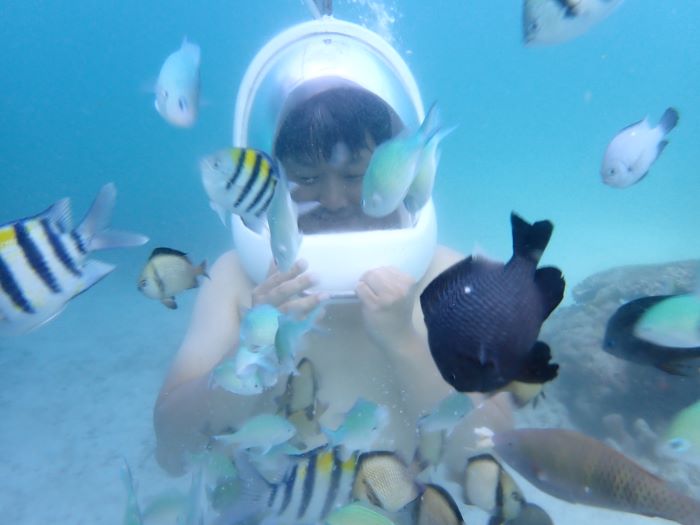
My next destination was El Nido - another beach town, this one near the northern tip of Palawan Island. But I took a rather roundabout way of getting there. First I took a flight to Cebu:
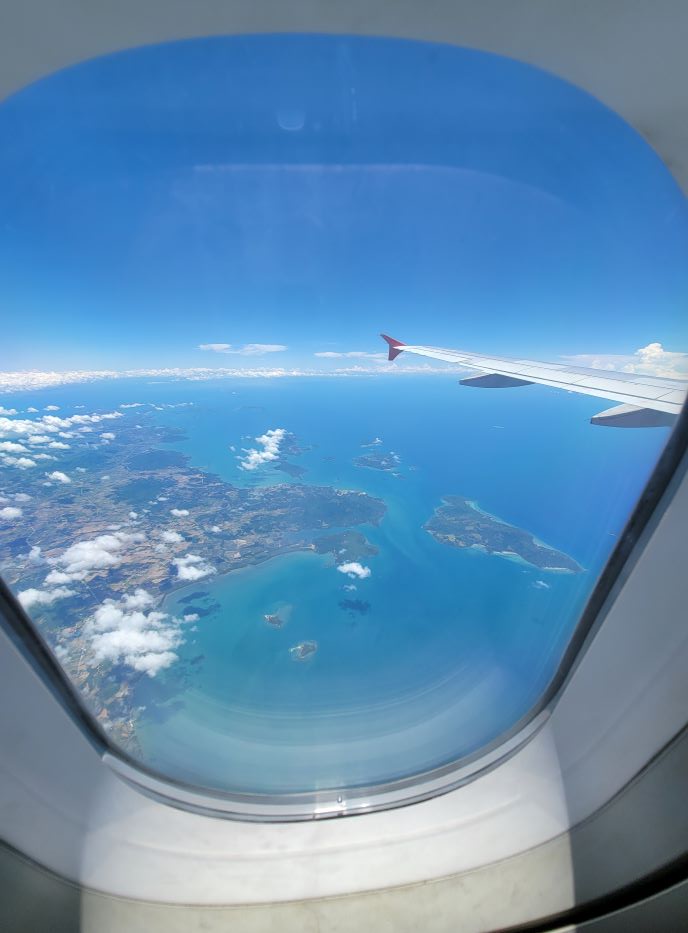
Where I visited Magellan's Cross Pavilion, which is supposed to house the cross that Magellan planted on this spot during his historical circumnavigation of the world:
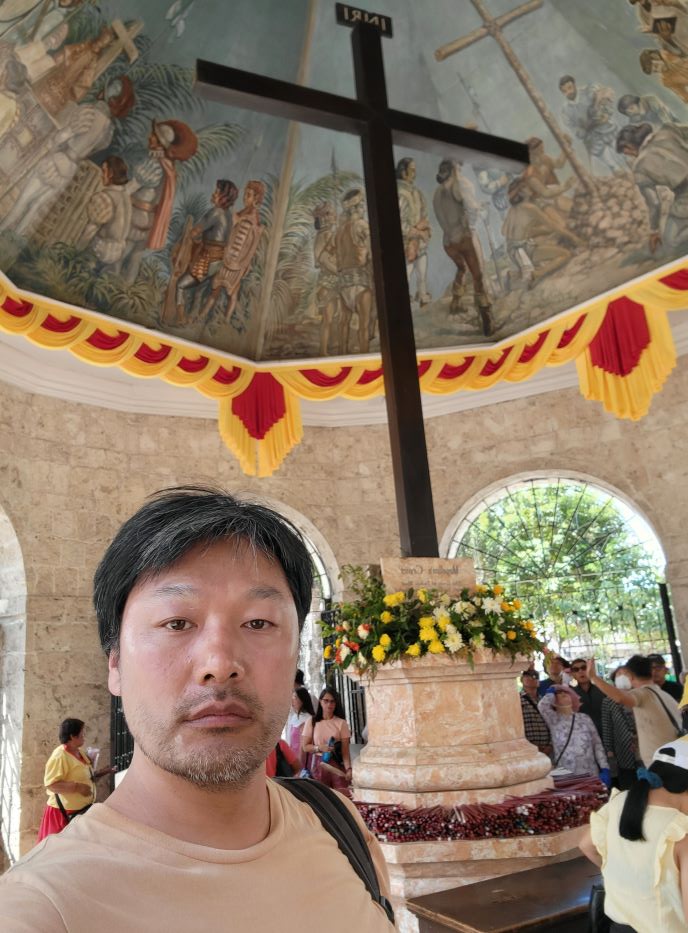
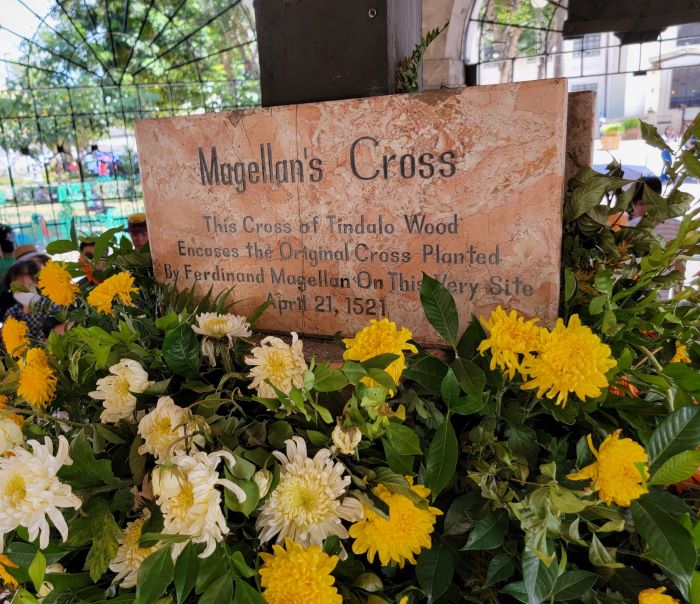
Right next to it is the Basilica del Santo Niño, which has further information about Magellan's voyage:
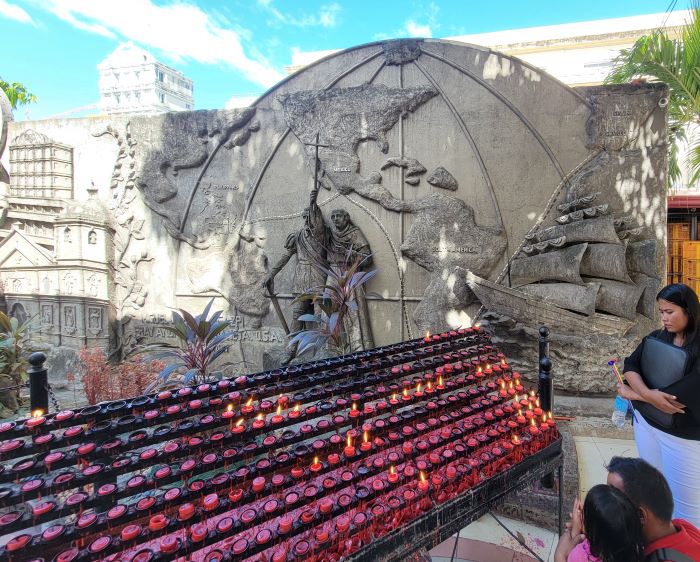
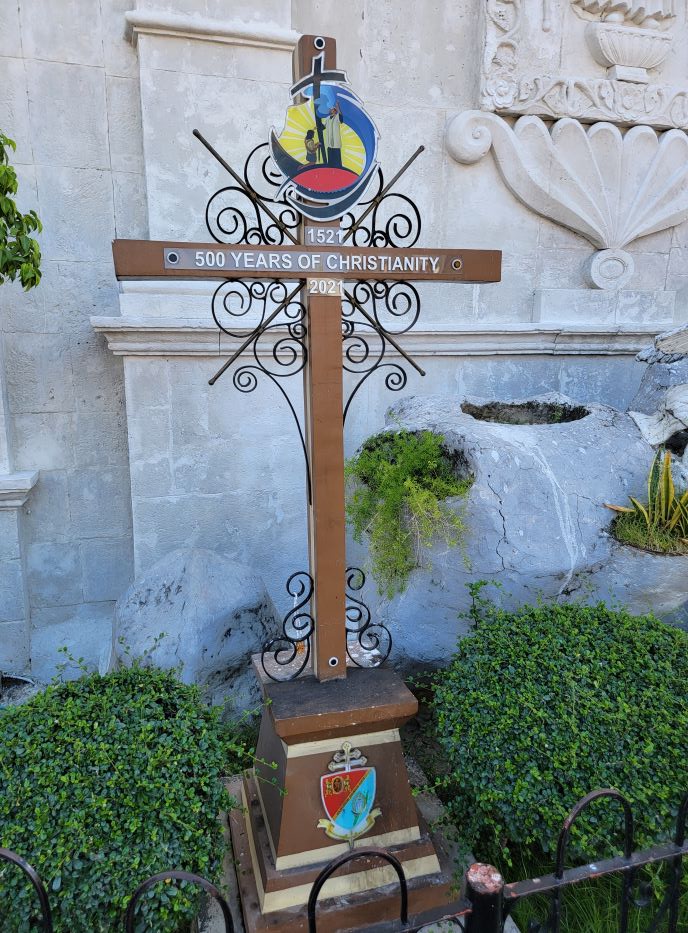
This was well worth the few hours of layover in Cebu. I next flew to Puerto Princesa, then took a bus up Palawan Island.
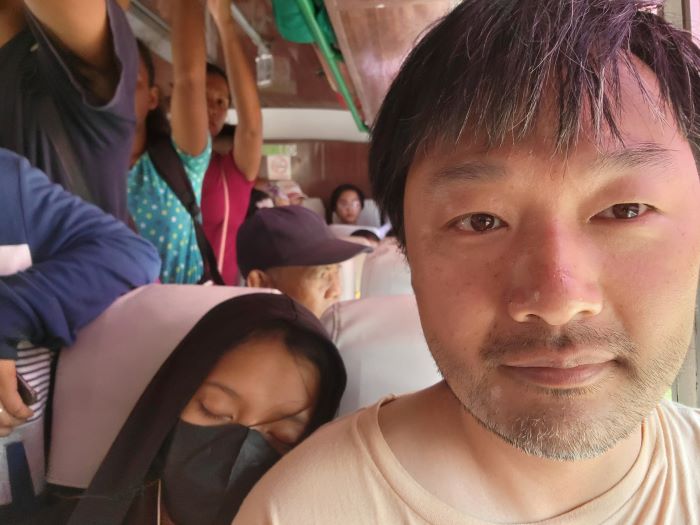
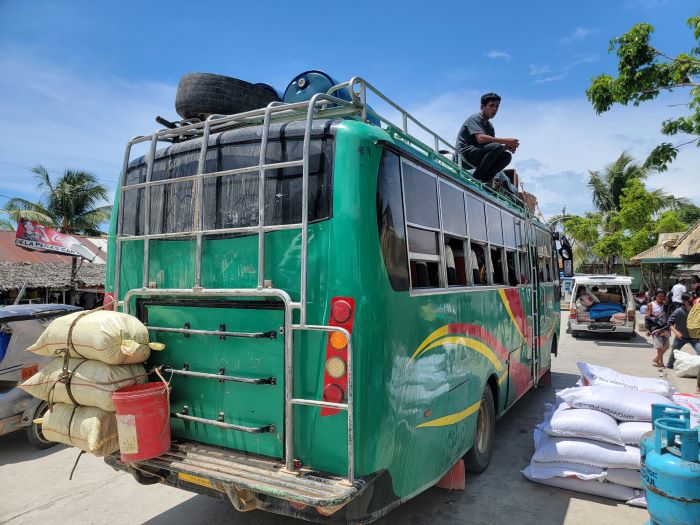
I was coming up on another Sunday, so I stopped in Roxas on my way up to El Nido. There I was lead by a string of "coincidences" to a church that's not even listed on Google maps. But it's located here, and it's named "Living in faith everyday (L.I.F.E.) church Roxas".
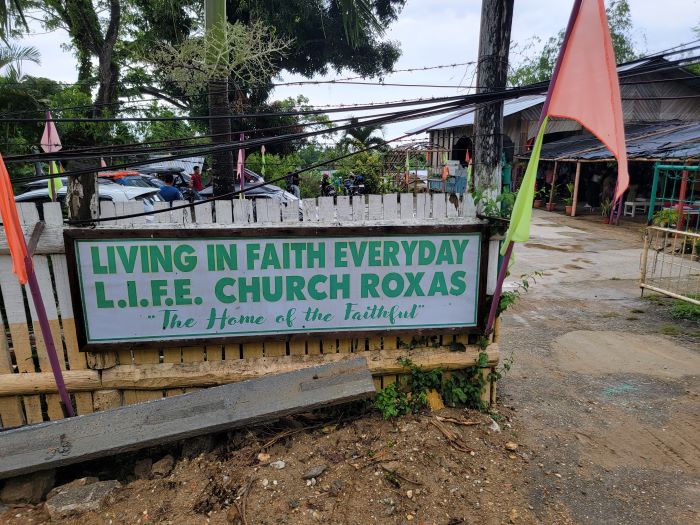
Although I couldn't understand too much of the sermon, the service was lively, and I felt that the Spirit was at work in this congregation. The people were especially welcoming, and very camera-friendly. I initially just wanted a few pictures, but it quickly turned into a group photo shoot:
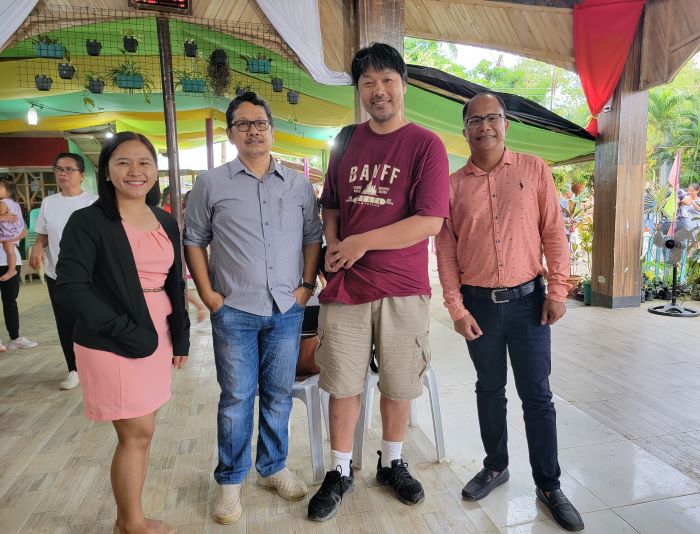
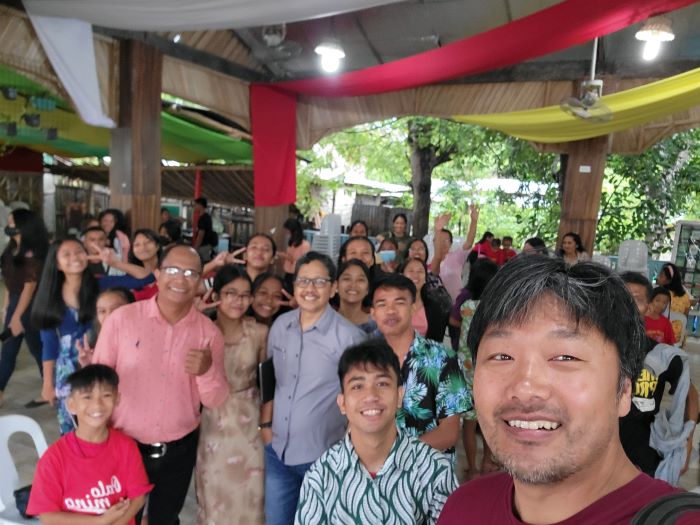
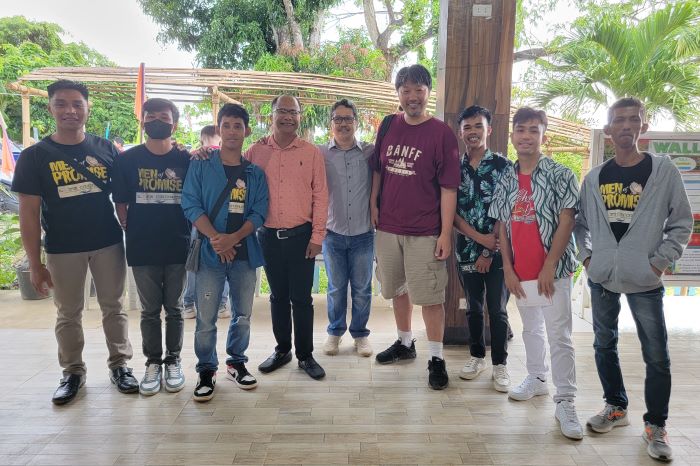
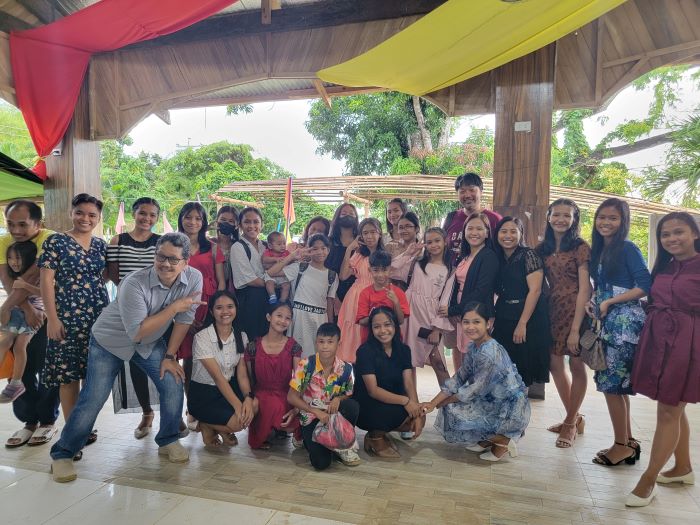
This was one of the most positive experiences I had in my travels, and confirmed for me all the positive things I'd heard about the people of the Philippines. They are indeed some of the friendliest and most welcoming people in the world, their country is beautiful, and God is at work among them. It was so good to find all that here, at a place so far from my home, in a church that I was so unlikely to find.
I wish I could have stayed longer - but I was still on my way to El Nido, and I had a bus to catch. I traveled the rest of the way up Palawan Island...
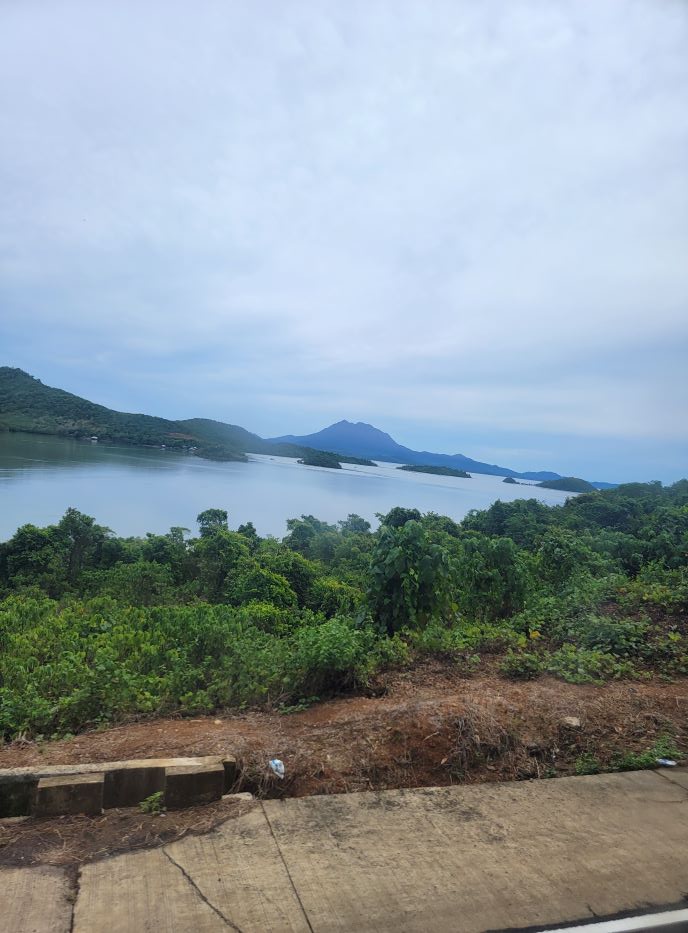
...and eventually got to El Nido. That evening, at a pier on the beach, I caught two women taking some pictures near the end of the day, and I tried to convince them that it'd be worth sticking around a few more minutes for the sunset:
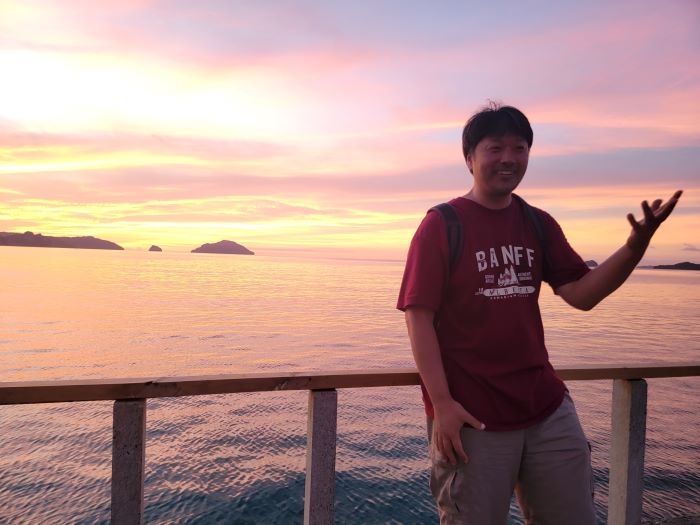
This is apparently my "convincing" pose, and it worked:
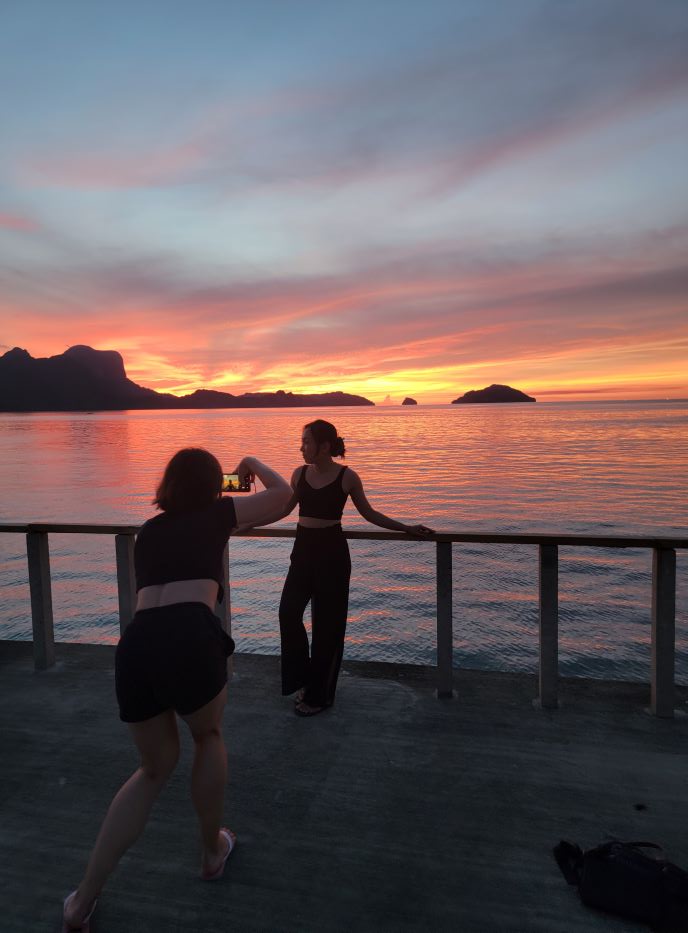
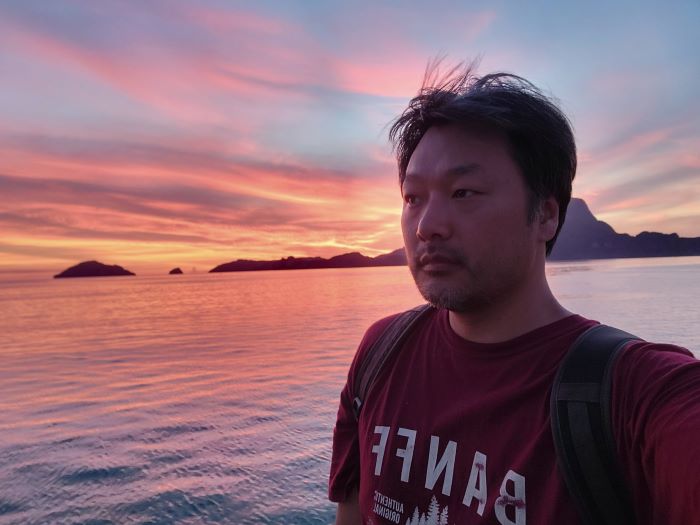
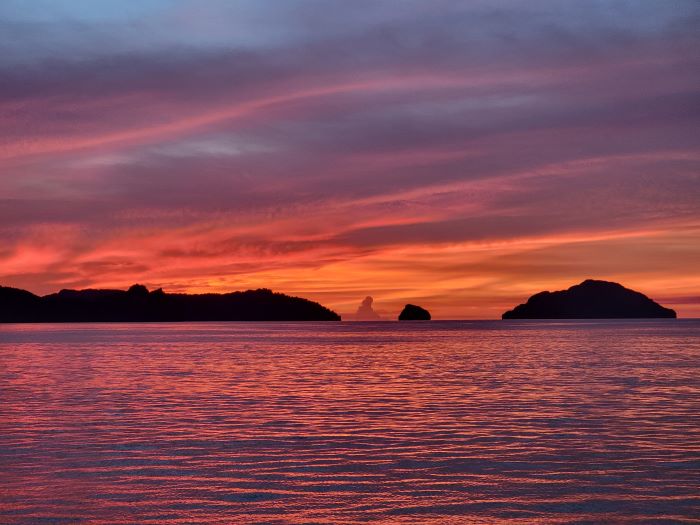
We briefly talked. I mentioned that I saw the total solar eclipse earlier in my trip, and we discussed the beauty of the sunset. We tried to compare the two - would a sunset be as beautiful an eclipse, if they were as rare? One of the women said that the common frequency of a sunset should not diminish its beauty. I'm inclined to agree - and although I'm on record as saying that a total solar eclipse is peerless, I'm grateful that something as beautiful as the sunset should be so common, and so accessible to everyone.
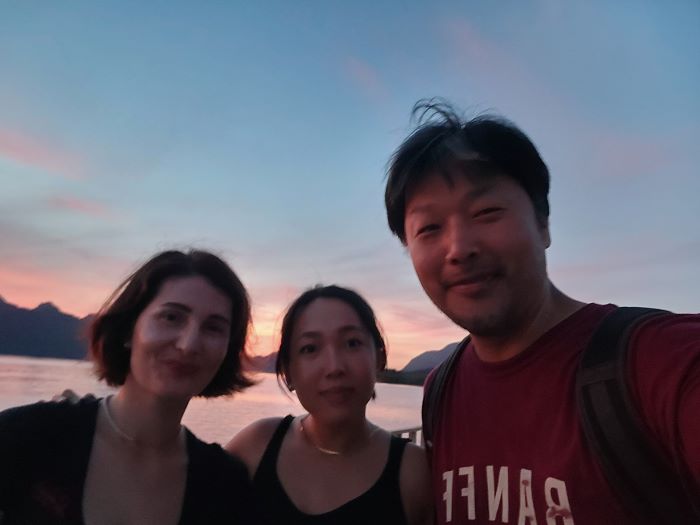
This is a bad picture: it was taken in the low light after the sun had set, while we were being hurried off the pier by security. But unfortunately it's the best picture of me with my sunset companions. We said our goodbyes and went our separate ways, but the sunset in El Nido continued to be gorgeous the next day:
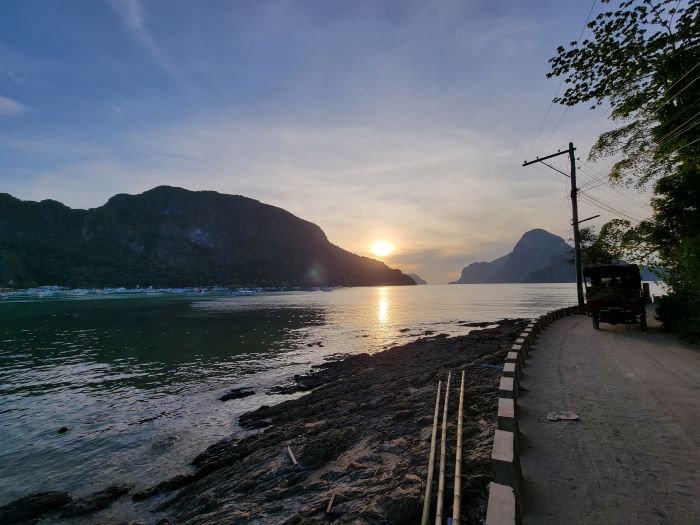
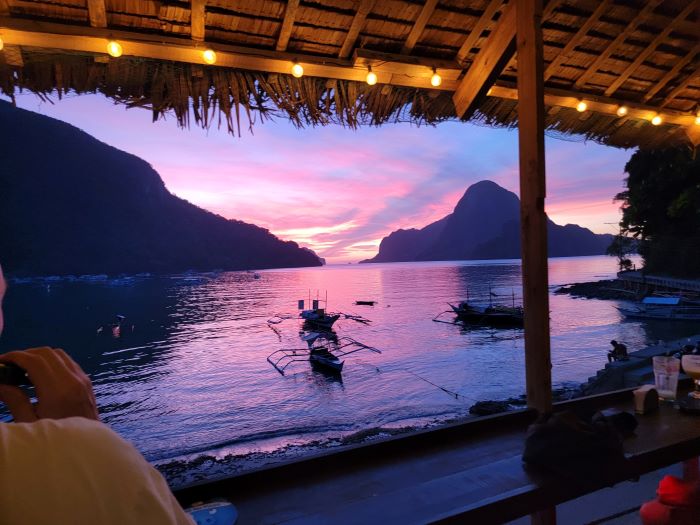
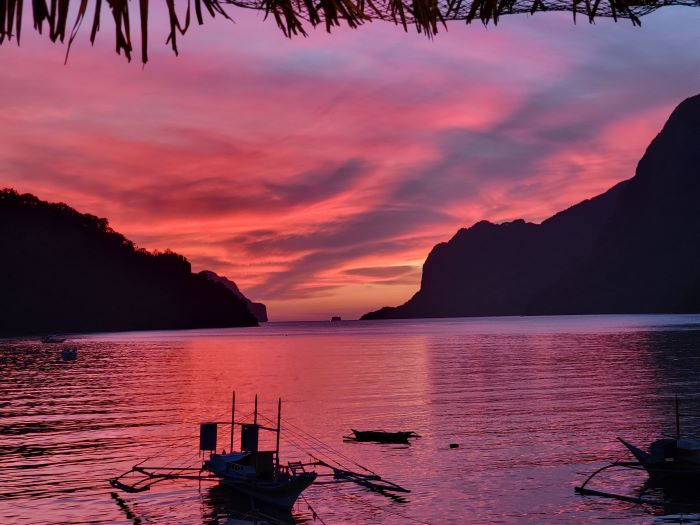
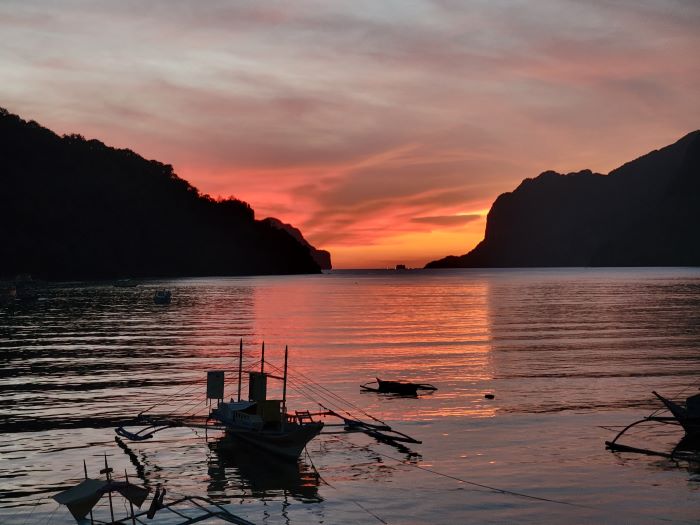
As for El Nido itself, the beach there was nice enough...
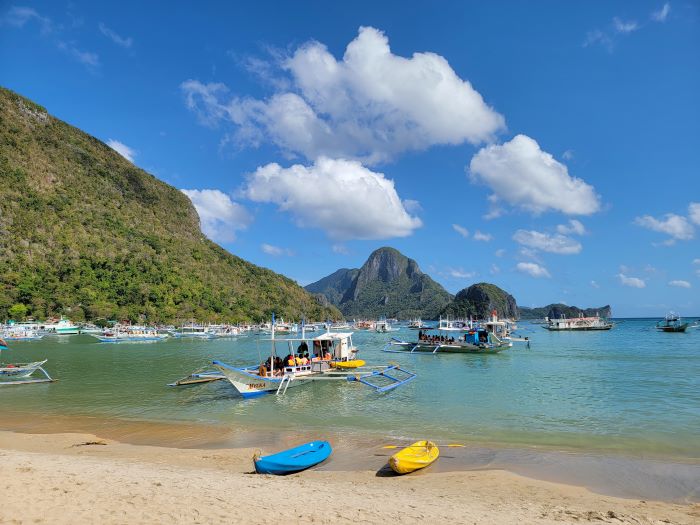
...but as in Boracay, the real fun was to be had in the activities based from here. An island hopping trip took me to the Seven Commando Beach...
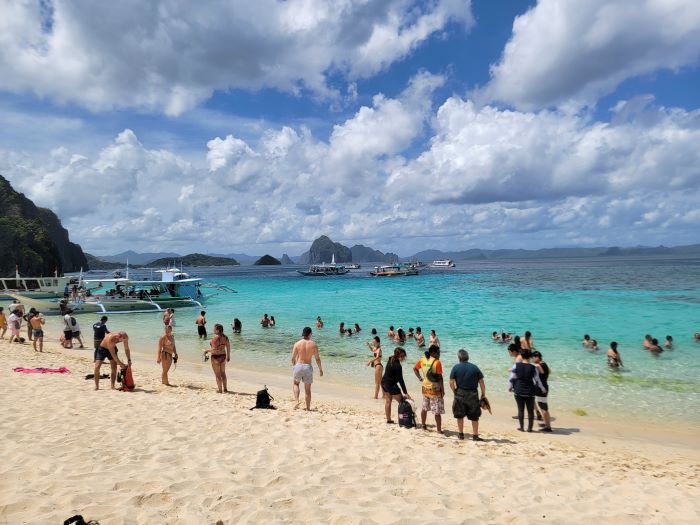
...which was actually my favorite beach in this whole trip, with the water, sand, and the views all coming together perfectly.
Even the views while just traveling between the island were quite pretty, with the blue sky and sea contrasting nicely with the distinct rock formations of this area:
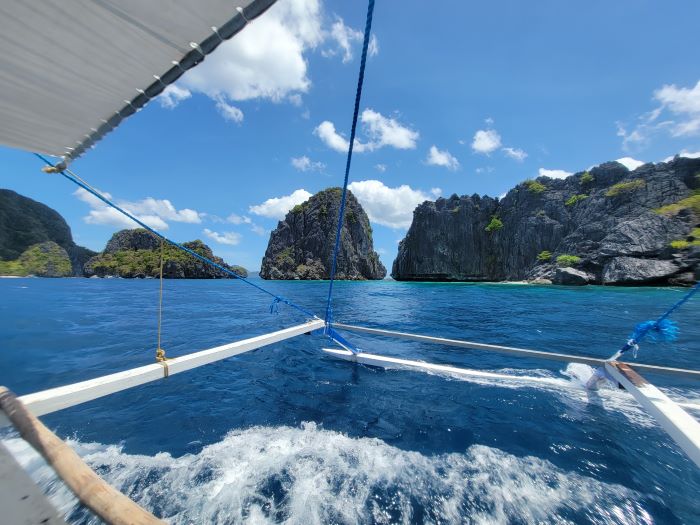
We also canoed in a large lagoon, where I teamed up with two women on the tour:
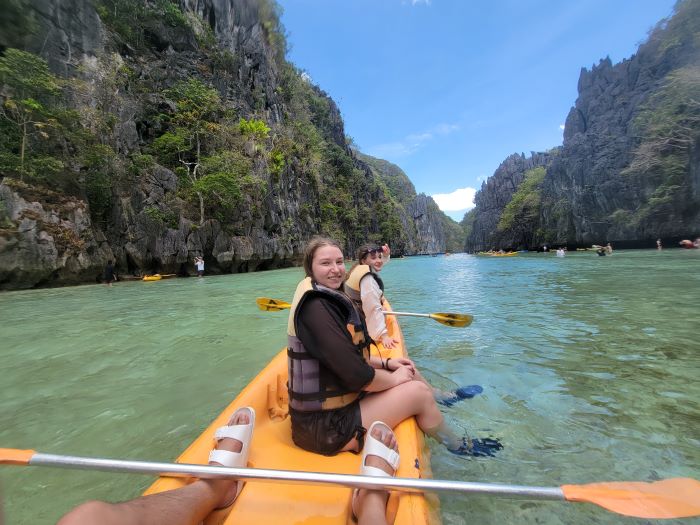
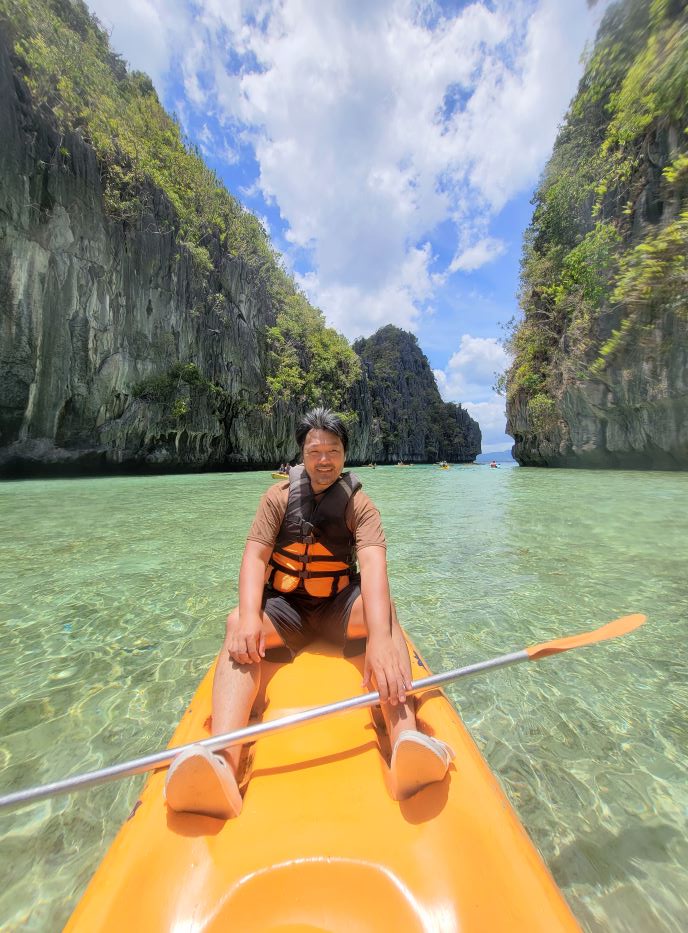
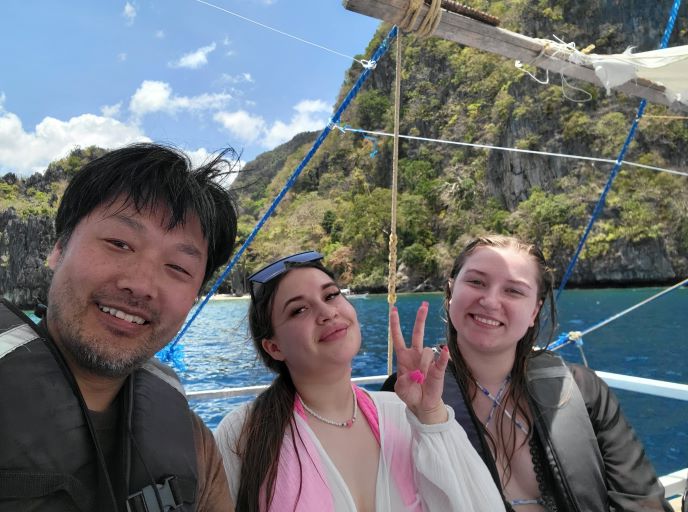
We then had lunch on a still another island with still stranger rocks...
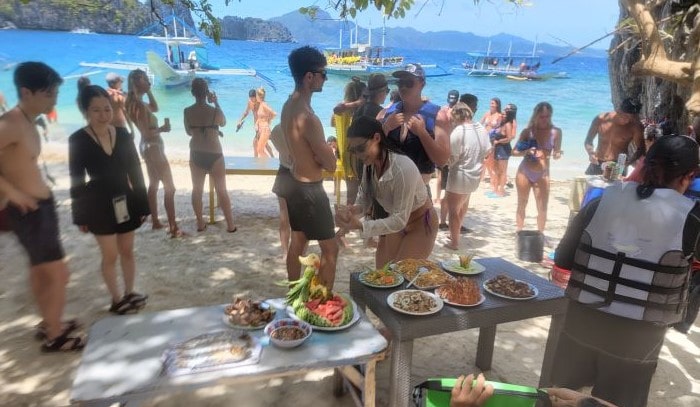
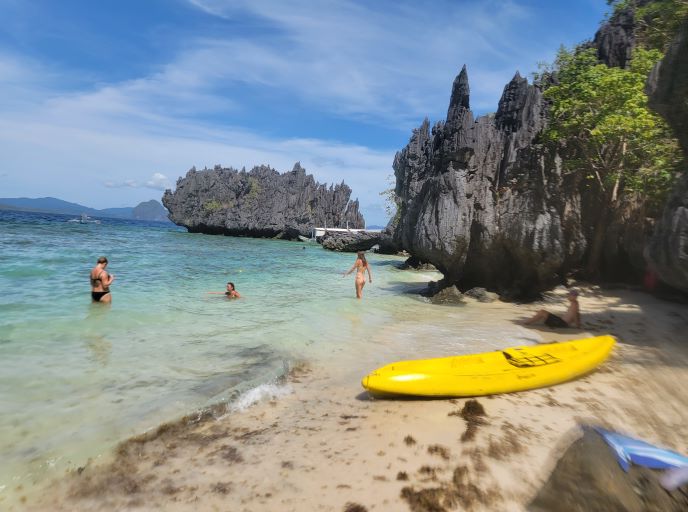
...and visited a more hidden lagoon, smaller and more shaded:
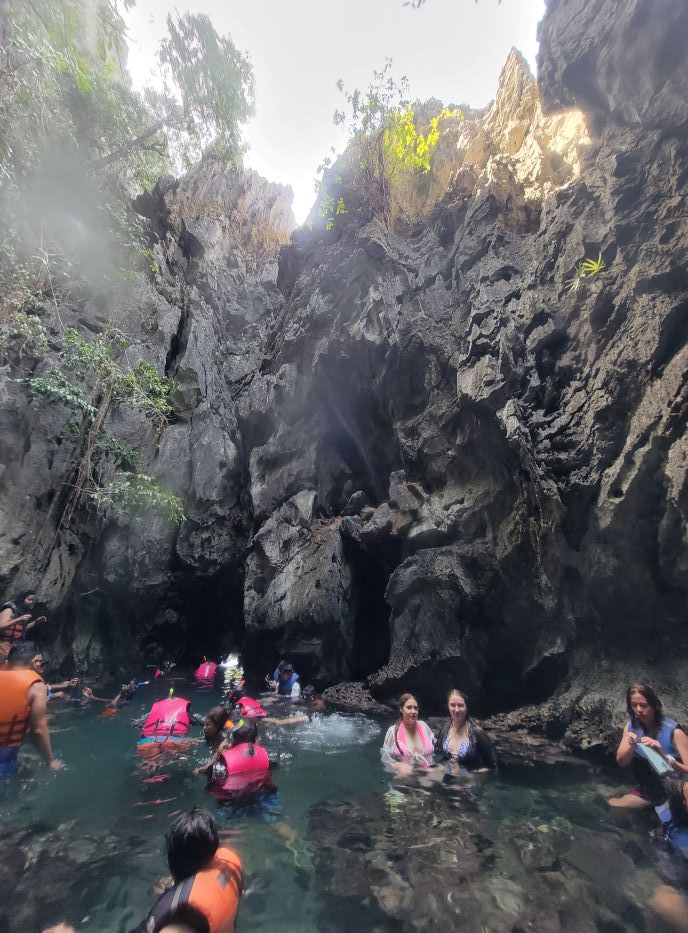
And that was about it! We did some snorkeling and headed back to El Nido:
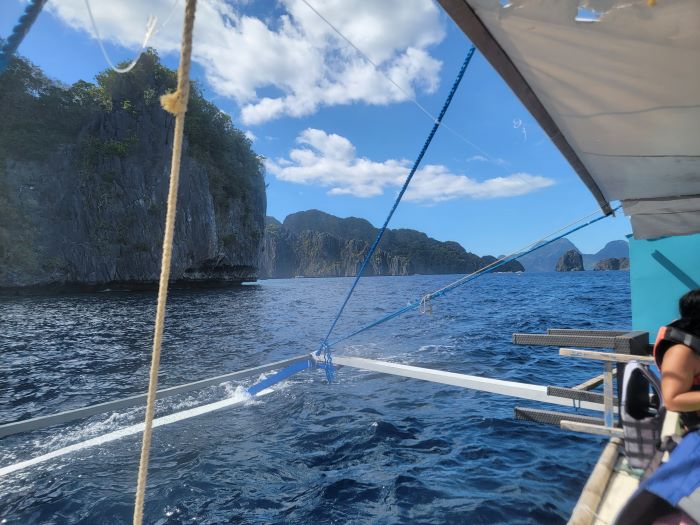
That also wraps up this whole trip. The next day was spent resting up, enjoying one last sunset, then starting back on my way back home.
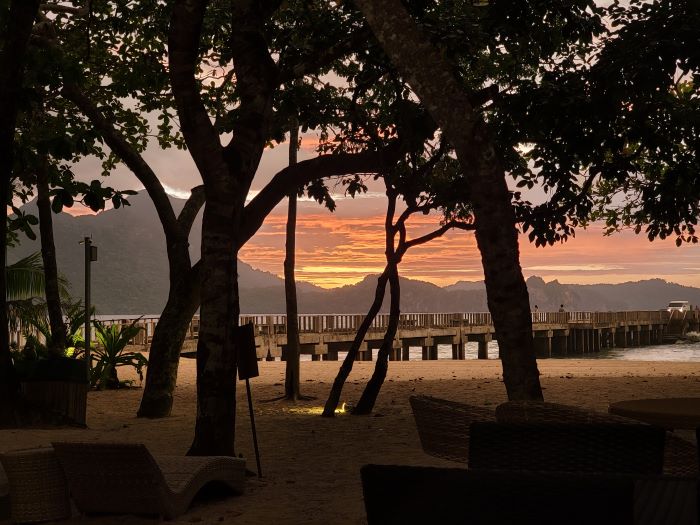
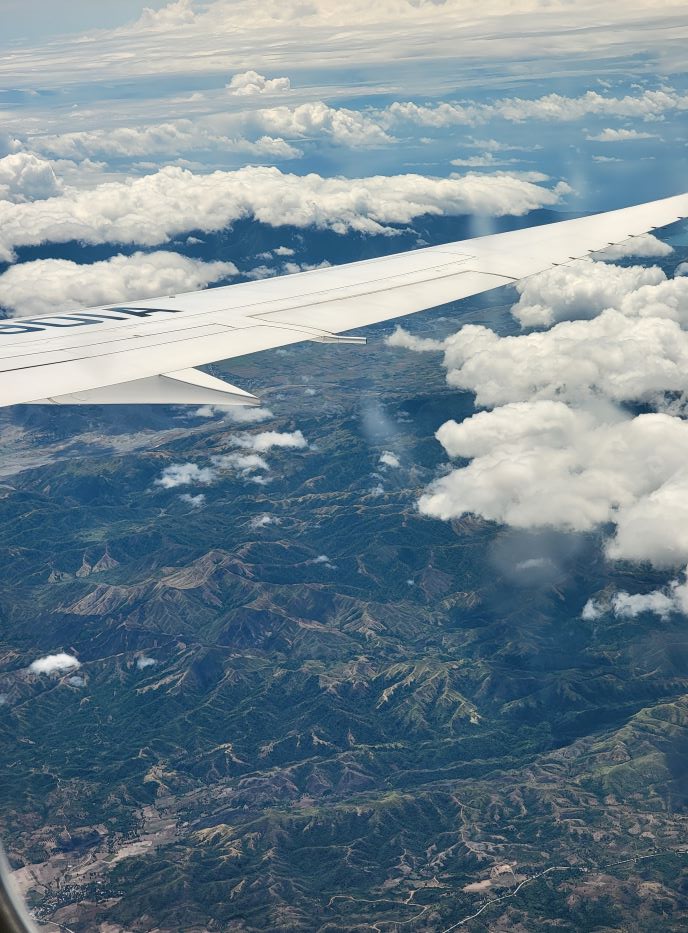
This was... a milestone of a trip. This was my fifth total solar eclipse. And although some of my past vacations may be said to be more remarkable in some way, I think a number of disparate factors converged together to make this trip some kind of a landmark. No, I'm not tired of traveling, or of solar eclipses. But I think some things will be different about my future trips - and I'm not quite sure what yet.
You may next want to read:
Leave a Reply
You must be logged in to post a comment.
Post Importance
Post Category
• humanities (26)
• current events (30)
• fiction (10)
• history (38)
• pop culture (14)
• frozen (8)
• math (58)
• personal update (21)
• logic (65)
• science (56)
• computing (16)
• theology (105)
• bible (40)
• christology (11)
• gospel (7)
• morality (23)
• uncategorized (2)